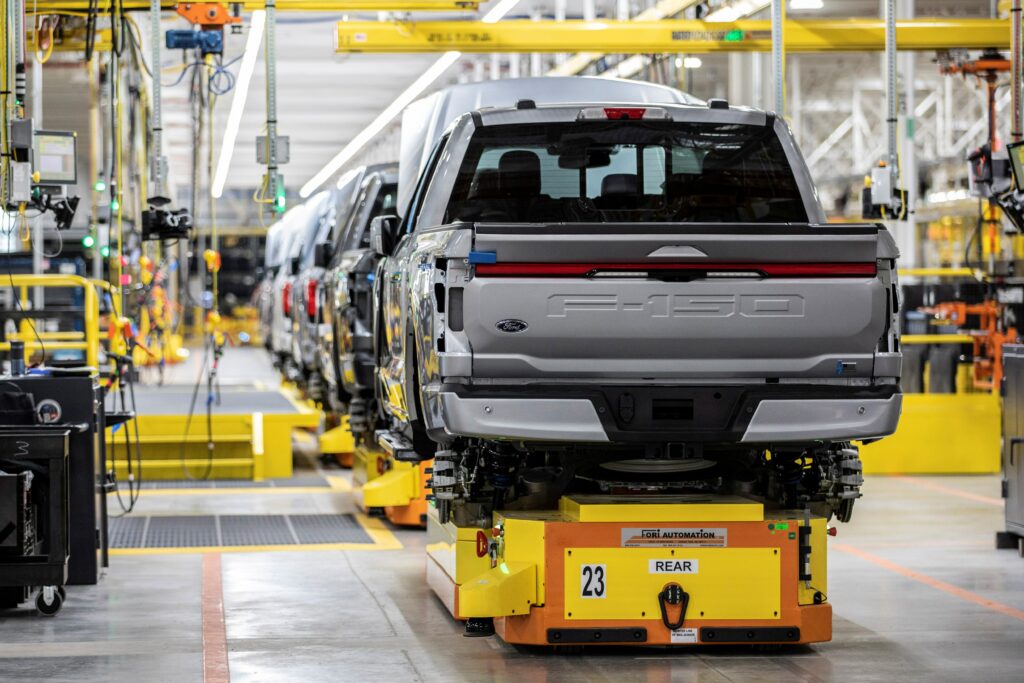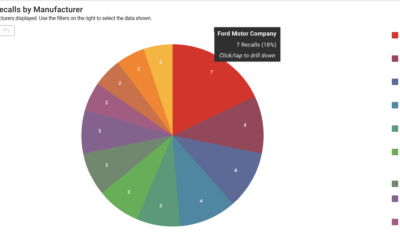
2025 Update: The average transaction price for an EV rose slightly last month. Check out the details below.
Car buying is the second biggest expense most consumers will ever make, and more drivers are getting squeezed into $1,000/month car payments. With an EV, you can save hundreds of dollars per month in fuel costs, but the upfront cost of getting into an electric car is substantial. Here’s the average price of an electric car today, and how much prices have increased over the past three years.
The Average Price of an Electric Car Is 12% Higher
As of the most recent data from December 2024, the average transaction price for a new car (of any powertrain) was $49,740 according to Kelley Blue Book. That’s up slightly from the month prior. In December 2024, the average new electric car price was $55,544.
In 2025, the average price paid for a new EV is 12% higher than the overall new car market average. How does this compare to the recent past? In 2024, electric car prices averaged 16% more than the overall market average. In 2023, EV prices averaged more than 8% higher than the overall market.
EV prices appear to have stabilized, and remain a premium segment in most cases. It’s also true that overall new car prices are much higher than historical norms, regardless of powertrain. According to KBB, new EV pricing peaked in June 2022 at $66,997, and has fallen by $11,453 since.
Why Are EV Prices So High?

An abundance of luxury options continues to keep the average price of an electric car well above gas counterparts. Affordable options like the Chevrolet Equinox EV have arrived, but so have expensive electric trucks like the Tesla Cybertruck and offerings from GM.
Electric truck prices are generally expensive (see electric truck prices here). For instance, the Chevrolet Silverado EV is not as affordable as originally claimed. Most electric trucks cost over $75,000 once trim and spec availability is considered.
Although the average EV sells for 12% more than gas-powered models, here’s a breakdown of the starting MSRP for the top 10 electric car models on sale right now. As you can see, not all EVs are quite this expensive:
- Tesla Model Y ($47,740)
- Tesla Model 3 ($40,240)
- Ford Mustang Mach-E ($46,995)
- Tesla Model S ($74,990)
- Chevrolet Bolt ($27,495)
- Tesla Model X ($79,990)
- Hyundai IONIQ 5 ($41,450)
- Kia EV6 ($42,600)
- Volkswagen ID.4 ($37,495)
- Ford F-150 Lightning ($49,995)
The average starting price for the top 10 best-selling electric cars in America is $48,899, which is 10% lower than six months prior.
EV Price Trends
In January 2020, the average electric car price was $54,668, or 42% higher than the overall market average. By 2023, the average cost of a new EV was $53,376 or about 10% higher than the overall new car market. Of course, this reflects the overall rising prices in the broader new car market. Here’s how the average cost of an electric car has changed monthly from January 2020 to 2025.
| 1-2020 | 2-2020 | 3-2020 | 4-2020 | 5-2020 | 6-2020 | 7-2020 | 8-2020 | 9-2020 | 10-2020 | 11-2020 | 12-2020 | 1-2021 | 2-2021 | 3-2021 | 4-2021 | 5-2021 | 6-2021 | 7-2021 | 8-2021 | 9-2021 | 10-2021 | 11-2021 | 12-2021 | 1-2022 | 2-2022 | 3-2022 | 4-2022 | 5-2022 | 6-2022 | 7-2022 | 8-2022 | 9-2022 | 10-2022 | 11-2022 | 12-2022 | 1-2023 | 2-2023 | 3-2023 | 4-2023 | 5-2023 | 6-2023 | 7-2023 | 8-2023 | 9-2023 | 10-2023 | 11-2023 | 12-2023 | 1-2024 | 2-2024 | 3-2024 | 4-2024 | 5-2024 | 6-2024 | 7-2024 | 8-2024 | 9-2024 | 10-2024 | 11-2024 | 12-2024 | |
|---|---|---|---|---|---|---|---|---|---|---|---|---|---|---|---|---|---|---|---|---|---|---|---|---|---|---|---|---|---|---|---|---|---|---|---|---|---|---|---|---|---|---|---|---|---|---|---|---|---|---|---|---|---|---|---|---|---|---|---|---|
| Average EV Price | $54,669 | $56,326 | $56,059 | $57,757 | $58,863 | $57,480 | $57,346 | $57,346 | $54,381 | $52,947 | $53,117 | $53,811 | $57,750 | $57,491 | $56,503 | $56,059 | $56,140 | $58,914 | $56,110 | $57,540 | $56,312 | $55,625 | $56,437 | $63,821 | $62,876 | $64,807 | $66,386 | $65,094 | $64,553 | $66,997 | $66,645 | $66,524 | $65,291 | $64,249 | $65,041 | $61,448 | $58,725 | $58,385 | $58,940 | $55,089 | $55,488 | $53,438 | $53,469 | $52,212 | $50,683 | $51,715 | $52,362 | $53,611 | $55,353 | $53,707 | $54,021 | $55,252 | $56,648 | $56,371 | $56,520 | $56,575 | $57,580 | $56,902 | $55,105 | $55,544 |
| New Car Average | $38,747 | $38,550 | $38,812 | $39,904 | $39,138 | $39,731 | $39,512 | $39,571 | $40,159 | $40,770 | $40,937 | $41,335 | $41,248 | $41,366 | $40,680 | $41,172 | $41,534 | $42,633 | $43,056 | $43,418 | $45,031 | $46,026 | $46,329 | $47,243 | $46,404 | $46,082 | $46,223 | $46,676 | $47,275 | $48,043 | $48,182 | $48,301 | $48,094 | $48,281 | $48,681 | $49,507 | $49,388 | $48,763 | $48,008 | $48,275 | $48,528 | $48,808 | $48,334 | $48,126 | $47,899 | $47,936 | $48,247 | $48,759 | $47,401 | $47,244 | $47,218 | $48,368 | $48,389 | $48,424 | $48,166 | $47,870 | $48,397 | $48,623 | $48,724 | $49,740 |
We track EV market share monthly. Here’s where things stand today.
Thinking of Buying?
Regardless of whether you think an EV might be in your future, CarEdge Car Search is the best way to shop online with more transparent pricing, and auto industry insights dealers don’t want you to see. Check it out today!













Are the average EV prices and all vehicle prices reversed from April 2023 in EV price trend?
Noriko, thank you for catching our error. Yes, those numbers were reversed. I have now made the fix. Have a great day!